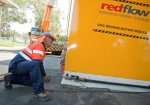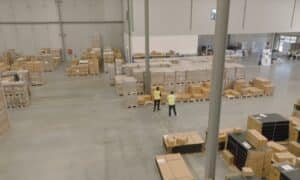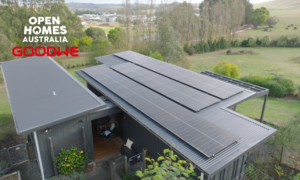Queensland based RedFlow is launching its M90 battery storage system today at the University of Queensland’s St Lucia campus.
A press release from the office of Mark Dreyfus; Parliamentary Secretary for Climate Change and Energy Efficiency, Industry and Innovation, states the M90 consists of 24 zinc bromine batteries housed in a 6 metre shipping container.
The system is connected to a 1.2 megawatt solar PV array at the campus and has a 90 kilowatt power output, with 240 kilowatt hours of capacity.
“The M90 is capable of storing large amounts of electricity from sources such as solar or wind power which can be used during peak demand periods or at night,” said Mr. Dreyfus, who is visiting the University today.
“One of the major challenges in the mainstream use of renewable energy has been finding a way to store electricity from intermittent sources like wind and solar, and it’s exciting to see Queensland lead the way.”
“Currently, intermittent renewable energy provides less than a third of our total energy mix, but advances like the M90 will increase this, helping Australia to slow down dangerous climate change and providing greater energy security to the grid,” he said.
RedFlow is the recipient of $3 million of support under the Federal Government’s new R&D Tax Incentive, which provide tax offsets to encourage small companies to engage in research and development.
RedFlow has also benefited from $1 million from the Government’s Advanced Electricity Storage Technologies program to develop small residential-scale systems, a number of which are now deployed in Australia in the Smart Grid Smart Cities trial.
Professor Paul Meredith, Renewable Energy Focal Group Chair at University of Queensland’s Global Change Institute says zinc-bromine batteries are next-generation technology.
“They are making solar energy much more useable and effective.”
For smaller scale solar installations, substantial headway is being made into home energy storage systems using lithium ion batteries. Along with home energy monitoring, the technology is shaping up to be the next big thing for residential solar and related industries.
Image credit: University of Queensland












































